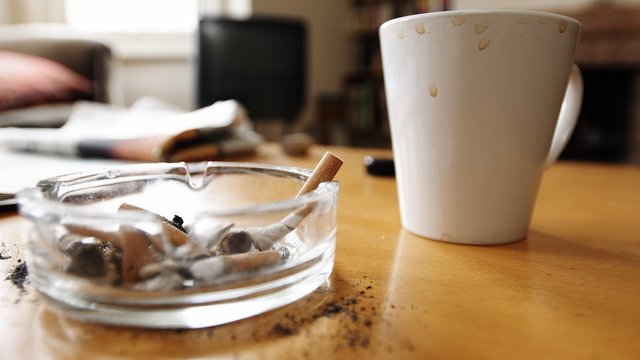Survey: Social Injustice responsible for bad health
12 June 2018, 07:17 | Updated: 12 June 2018, 07:20

Around half of Scots believe injustice in society is behind some people having poorer health than others, according to a study.
A survey by the Scottish Centre for Social Research found a majority of people believe there are differences in people's health based on both their financial situation and the type of area they live in.
Some 51% of those questioned agreed with the statement that "certain people's health is worse than others because of injustice in our society".
Over a quarter, 27%, disagreed with the statement while 21% were neutral or did not know.
Women were more likely than men to point the finger at societal injustice, while those on the left of the political spectrum were more than six times as likely to do so compared with those on the right.
In further findings, 72% of people agreed the quality of the house people live in contributes to health differences, while 82% said a factor was people not having learned to make healthy choices.
More than two-thirds of Scots, 67%, think people's health is worse because they are poor.
The report, entitled Scottish Social Attitudes - Public Attitudes to Inequality, was commissioned by NHS Health Scotland in 2016.
Health inequalities are defined as unfair and avoidable differences in people's health across the population and between specific population groups.
The report found seven in 10 people (71%) felt those with more money are better able to live healthy lives.
A similar proportion (72%) said people living in better off areas tend to be healthier than those living in worse-off areas. However, just under half (48%) felt this represents a big problem.
A majority, 58%, said they would be willing to pay higher taxes to improve the health of poorer people in Scotland.
Those on the left of the political spectrum were almost twice as likely as those on the right to be willing to do so.
The majority of people in Scotland, 72%, agreed the gap between those with high and low incomes is too large.
Around two-thirds (67%) agreed that "large differences in people's incomes are unfair", while one in six (17%) disagreed.
Six in ten (62%) think individuals are more responsible than the government for their own health, but half of Scots said they would like government to do more to reduce differences in health between those on high incomes and those on low incomes.
Susan Reid, research director at ScotCen, said: "Today's findings illustrate that the vast majority of Scots believe that poverty is related to having poorer health and overwhelmingly perceive the income gap as too large.
"Although there are marked differences in attitudes between different social groups when it comes to views on potential causes of these inequalities, we also observe common ground and shared goals; most Scots would like government to focus on improving the status quo and there is considerable support for increasing taxes as part of that."
Scottish Labour said the findings support its call to "make the wealthiest pay their fair share".
The party's poverty spokeswoman Elaine Smith said: "The top 1% in Scotland own almost as much wealth as the bottom 50% put together. That is unacceptable and unsustainable.
"Scotland can only be a healthier country if it is a fairer country."
Public Health Minister Aileen Campbell said: "Tackling inequality is crucial to improving the health of many people in Scotland, and continues to be central to the government's policies.
"Later this week we will be jointly launching, with (local government body) Cosla, Scotland's public health priorities, setting out our ambition for Scotland's public, third sector and private organisations, working with communities, to tackle inequality and Scotland's key public health challenges.
"We will follow this with strategies and action plans for specific areas, such as diet, physical activity and substance misuse."
Fieldwork for the study ran between July and December 2016 and consisted of face-to face interviews with 1,237 adults.






